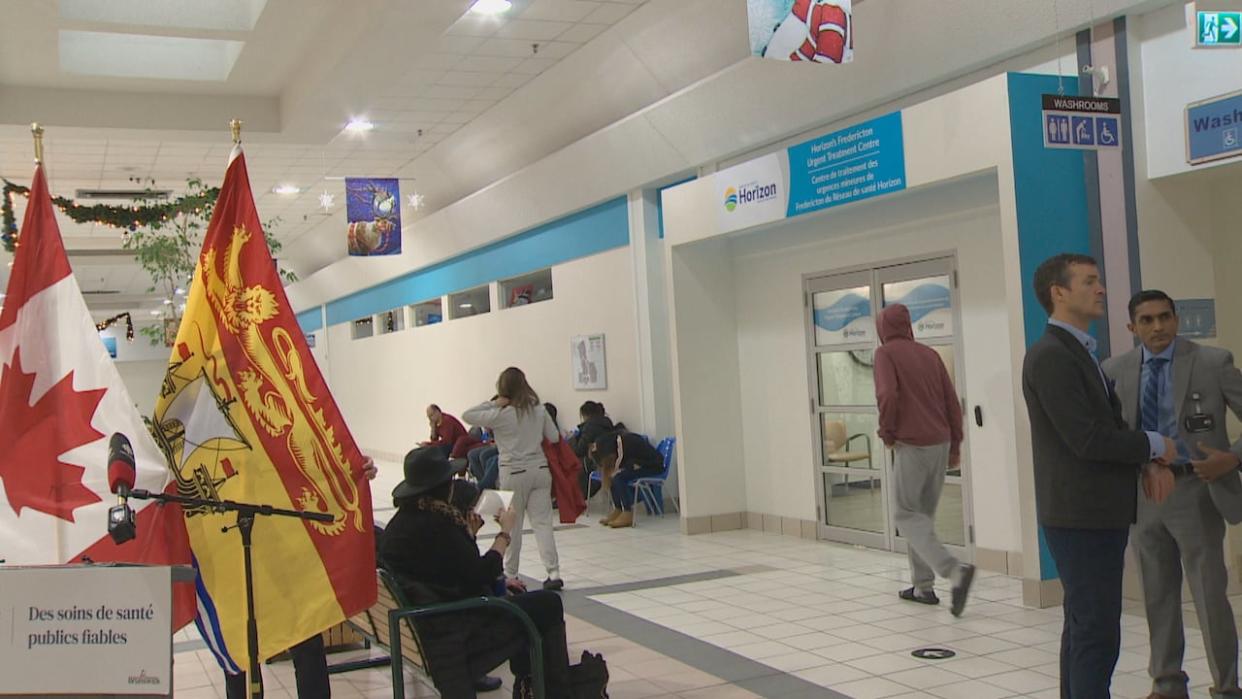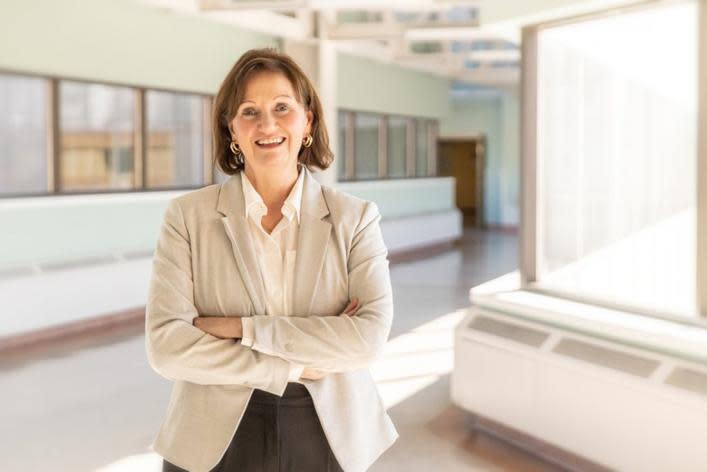Horizon Health reports more than 2K new hires, strategies to reduce wait times and bed occupancy

Horizon Health Network says it's added thousands of new employees in the last fiscal year and has developed strategies to reduce ER wait times and reduce the bed occupancy rates of those waiting for long-term care.
The health authority released its quarterly progress report on its critical action plan Wednesday.
According to the report, Horizon has hired more than 2,400 new employees, including more than 900 nurses and 150 physicians, during the fiscal year that ended on March 31.
The breakdown of nurses hired shows:
637 registered nurses, with a net gain of 224.
282 licensed practical nurses, with a net gain of 140.
643 patient-care attendants, with net gain not specified.
Margaret Melanson, president and CEO of Horizon, said nurses and physicians were recruited both internationally from universities in the province and across the country.

Margaret Melanson, president and CEO of Horizon Health Network, says one measure to reduce bed occupancy by those waiting for a space in a long-term home is to identify patients who may require that level of care when they are admitted to the emergency room. (Submitted by Horizon Health Network)
Most are employed in Moncton and Saint John and the physicians include both specialists and family doctors, she said.
The remaining 1,400 new staff include physiotherapists, occupational therapists, speech language pathologists, pharmacists, and those working in diagnostic areas, including medical imaging.
That number also includes support service staff within housekeeping, food service and maintenance and engineering.
Focus on cases needing long-term care
Melanson said the availability of hospital beds is a top priority for Horizon as more than one-third of beds are currently occupied by patients waiting for long-term care.
Bed occupancy is at 100 per cent in regional facilities, she said, causing an eight-hour wait for 70 per cent of patients admitted through the emergency department.
She said one measure to reduce bed occupancy by those waiting for a space in a long-term care home is to identify patients who may require that level of care when they are admitted to the emergency room.
Horizon is also working with the Department of Social Development to create a more effective strategy for moving seniors into long-term care and "how, as well, we can work with them toward creation of additional long-term care capacity."

A pilot project in partnership with Ambulance New Brunswick reduced wait times for stroke patients to receive a CT scan once they have arrived at an emergency department. (Shutterstock)
Horizon has set a goal to lower these cases to below 330, or 20 per cent of hospital occupancy, by January 2026.
Reducing wait times
Melanson said the health network is hoping the addition of new staff within emergency rooms will reduce wait times.
This will include nursing staff, social workers, physiotherapists, occupational therapists and respiratory therapists.
She said the Horizon is also focused on increasing access to primary care to reduce dependency on emergency rooms, including creating solutions across 46 community health-centre sites with a goal to increase same-day and after-hours access.
New community centres have been added in Fredericton, Saint John and Tobique Valley this year and 12 existing centres will be modernized to improve access.
Other highlights from the update:
Fredericton Urgent Treatment Centre expanded its operations to three days a week by adding Tuesdays to its service rotation.
Moncton Hospital ambulance offload times improved by 70 per cent from September 2022, with an average time of 63 minutes compared to 213 minutes, previously.
A pilot project in partnership with Ambulance New Brunswick reduced wait times for stroke patients to receive a CT scan once they have arrived at an emergency department. That wait time for patients decreased from more than an hour to 14 minutes.


